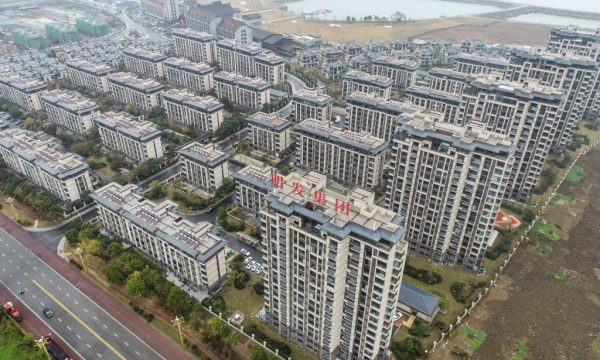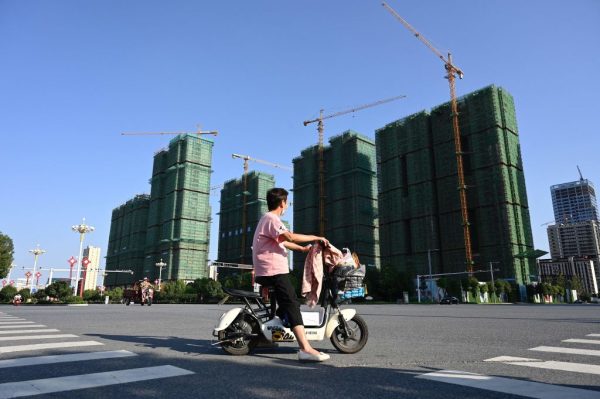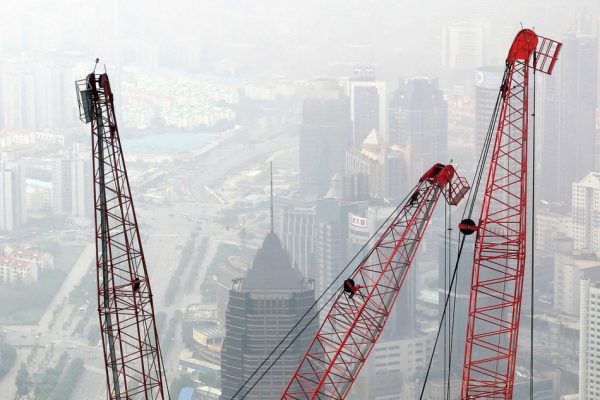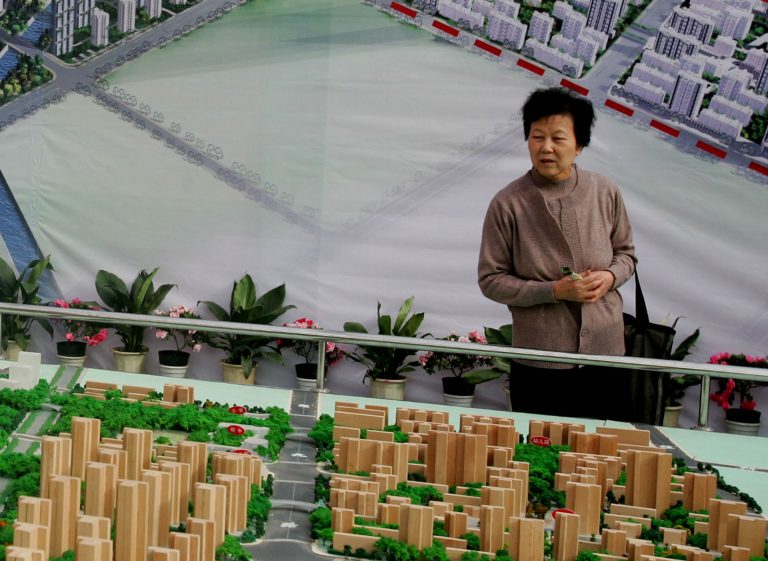As the world’s second-largest economy continues to brace against significant stress in its property sector, the latest alarm bell was rung by Country Garden — one of its premier real estate developers. With a record reported loss of $6.7 billion in the first half of the year, the company’s future looks grim.
Deepening crisis
The company, in a recent announcement, expressed “deep remorse for its unsatisfactory performance.” But its predicament isn’t isolated: The ripple effects of China’s turbulent property market — responsible for approximately a third of the nation’s economy — are causing concerns about the stability of its post-pandemic recovery now that virus controls have been fully lifted.
MORE ON CHINA’S ECONOMY:
- As China’s Finances Worsen, Thug-like Local Governments Impose a ‘Fines Economy’
- Evergrande’s Hengda Real Estate Group Under Probe for Allegedly Breaking Information Rules
- Chasing Higher Interest Rates, Chinese Resort to ‘Special-forces’ Banking
- China Plans 1.5 Trillion in Financing to Prop Up Debt-Swamped Local Governments
Country Garden’s woes were accentuated when it revealed a missed interest payment on its due bonds. Although it still lies within the 30-day grace period to address the payment, the company is said to be negotiating an extension for another bond repayment deadline. According to The New York Times, it must come up with $22.5 million this week to address overdue interest payments.

“Country Garden is trying hard to fulfill debt obligations, but whether this can continue will depend on the effectiveness of this round of stimulus and regulatory relaxation (of curbs on the property sector),” Gary Ng, a senior economist with Natixis Asia Pacific, told Reuters.
In a warning filed with a regulatory filing body in Hong Kong, the agency said, “If the financial performance of the [Country Garden] group continues to deteriorate in the future, they could default on their debts.” The filing continued, “The group might not be able to fulfill the financial covenants of these borrowings, which may result in default in these borrowings and cross-default in certain other borrowings.”
Success
You are now signed up for our newsletter
Success
Check your email to complete sign up
RELATED: Asia’s Wealthiest Woman Loses $12 Billion in China’s Real Estate Crisis
Despite seeings its financial waters churn with uncertainty, however, Country Garden shares showed a surprising uptick, trading around 1 percent higher in Hong Kong on Aug. 31. This might hint at investors still holding some hope, or it could simply be the volatile nature of the stock market, said Ng.
Evergrande: A preceding tale?
Country Garden’s narrative finds parallels with developer Evergrande, which was once the zenith of China’s real estate industry. However, when Beijing initiated rules in 2020 to limit borrowing by prominent property developers, companies began to feel the heat.
Evergrande’s aggressive expansion tactics culminated in debts surpassing $300 billion. Its financial quagmire caused multiple other developers to default on their debts, leading to numerous unfinished construction projects. On Aug. 18, Evergrande unveiled a loss of 33 billion yuan for the first half of the year, and filed for U.S. bankruptcy protection.

“The application is a normal procedure for the offshore debt restructuring and does not involve (a) bankruptcy petition,” Evergrande said in the filing, adding that it will be “pushing forward with its offshore debt restructuring.”
The company’s restructuring of its offshore debt — totaling $31.7 billion — encompasses bonds, collateral, and repurchase commitments. Evergrande plans to discuss its restructuring plans with creditors later this month, with a Chapter 15 recognition hearing scheduled for Sept. 15, Reuters reported.
To make matters worse, Evergrande’s shares plummeted almost 80 percent on their first day back in the Hong Kong trading scene after an 18-month hiatus. Over the past three years, Evergrande’s shares have dwindled in value by a whopping 99 percent.
Broader economic implications
China’s struggles aren’t just confined to the property sector. Stagnant economic growth, escalating local government debt, and unprecedented youth unemployment rates pose serious challenges, experts note.

RELATED: Data Shows Massive Decline in US-China Trade
Highlighting the issue further, recent official data revealed that China’s manufacturing activity is on a decline, with the Purchasing Managers’ Index (PMI) registering at 49.7 in August. Although it marked an improvement from prior readings, the figure still remains below the 50-point mark, signifying a severe economic contraction.
The struggles of real estate giants like Country Garden and Evergrande are symptomatic of deeper economic issues plaguing the country as a whole.














